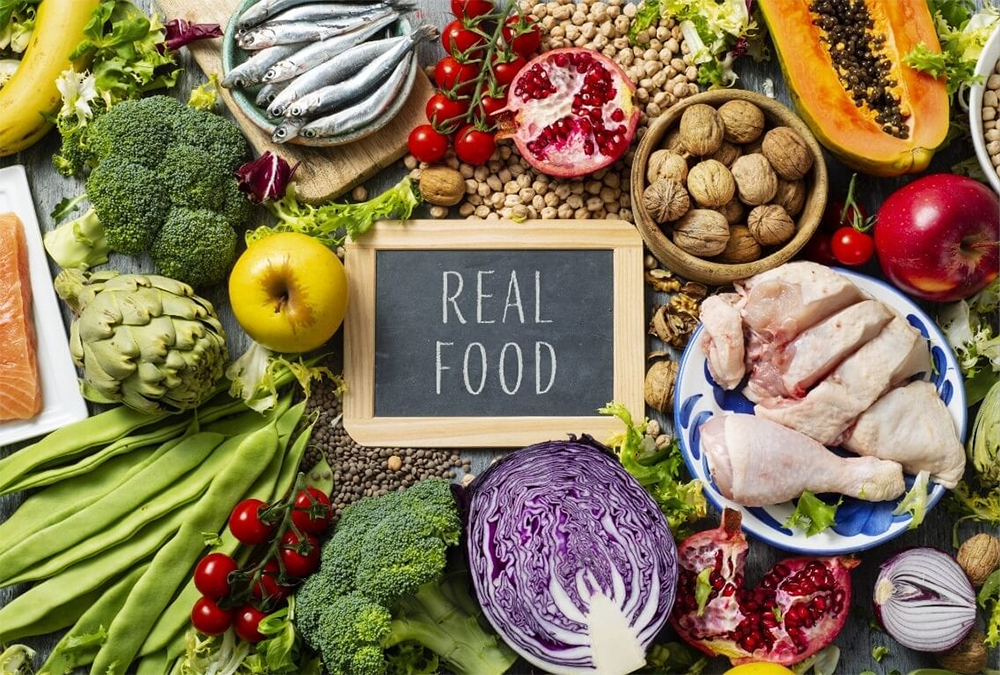“`html
In today’s fast-paced world, the convenience of processed foods often overshadows the importance of wholesome nutrition. However, adopting a real food diet can lead to numerous health improvements that outweigh the allure of convenience. A real food diet emphasizes whole, unprocessed ingredients such as fresh fruits, vegetables, whole grains, lean proteins, and healthy fats, providing your body with the essential nutrients it craves without harmful additives. Here are ten compelling benefits of embracing a real food diet.
Processed Foods No More
The primary advantage of a real food diet is the removal of processed foods from your meals. Processed options often come laden with unhealthy amounts of sugar, salt, and unhealthy fats, contributing to weight gain and an increased risk of chronic diseases such as heart disease and diabetes. In contrast, opting for real foods, which are minimally processed, allows for the retention of their natural nutritional benefits.

Free from Harmful Additives
One of the significant drawbacks of processed foods is the abundance of chemical additives, including preservatives, artificial flavors, and colors. These substances can adversely affect your health when consumed over time. A real food diet eliminates this necessity for chemical additives, equipping your body with clean and wholesome ingredients devoid of synthetic elements.
Nutrient-Rich Choices
Real foods are abundant in essential nutrients such as vitamins, minerals, and antioxidants crucial for optimal body function. For instance, leafy greens are excellent sources of vitamins A and C, while whole grains supply B vitamins and fiber. Because these foods remain intact through the processing stages, they offer superior nutritional value compared to their processed counterparts.
Lower Sugar Levels
A real food diet naturally curtails sugar intake. In contrast to processed foods, which are often replete with added sugars leading to weight gain and blood sugar fluctuations, real foods—including fruits and vegetables—contain naturally occurring sugars accompanied by fiber, which helps prevent rapid blood sugar spikes.

Heart and Circulatory Health
Consuming real food is a proactive measure for enhancing heart health. Whole grains, fruits, vegetables, nuts, and lean proteins are rich in nutrients that contribute to cardiovascular well-being, including fiber, omega-3 fatty acids, and antioxidants. These nutrients are essential in lowering cholesterol, reducing blood pressure, and enhancing overall heart health, making a real food diet a solid choice for avoiding heart disease.
High Fiber Content
Real foods are some of the best sources of dietary fiber, a vital element of a healthy diet. Whole grains, fruits, vegetables, and legumes are fiber-rich, supporting digestive health. Fiber also promotes satiety, aids in blood sugar regulation, and contributes to heart health by lowering cholesterol levels.

Cost-Effective Eating
While some perceive a real food diet as more expensive, it can ultimately prove to be more economical. Processed foods may appear cheaper upfront, but the health issues they cause can result in significant medical bills later. Moreover, by prioritizing whole foods, you often have the option to buy in bulk or purchase locally, saving on costs in the long run.
Sustainability and Environmental Benefits
A real food diet not only benefits personal health but also supports environmental sustainability. The production, packaging, and transportation of processed foods consume considerable energy. In contrast, local whole foods have a smaller carbon footprint. By choosing real food, you promote sustainable agricultural practices beneficial for our planet.
Enhanced Dental Health
The consumption of real food contributes positively to dental health compared to sugary processed snacks. Crunchy fruits, vegetables, nuts, and seeds naturally help clean teeth during chewing, while sugary processed snacks adhere to teeth, fostering decay. Additionally, real foods tend to lack the harmful acids and sugars that can wear away tooth enamel.

Incredible Taste
The flavors of real food significantly outshine those of processed options. The natural tastes of fresh fruits, vegetables, herbs, and spices are incomparable to the artificial flavors found in many packaged foods. Eating real food allows you to enjoy the unique flavors of seasonal produce, ensuring your meals remain varied and exciting.
Conclusion: Embracing Real Food
Transitioning to a real food diet is one of the most impactful choices for enhancing your overall health and wellness. By eliminating processed foods, synthetic additives, and excess sugar, you enable your body to reap the benefits of the rich nutrients found in whole, unprocessed ingredients. A real food diet fosters heart health, enhances dental hygiene, ensures adequate fiber intake, and is environmentally friendly. It is also surprisingly budget-friendly while offering a wide array of delightful natural flavors. Whether your goal is to refine your energy levels, shield your heart, or simply savor wholesome meals, adopting a real food diet is a sustainable and healthful pathway to achieving your aspirations.
“`

